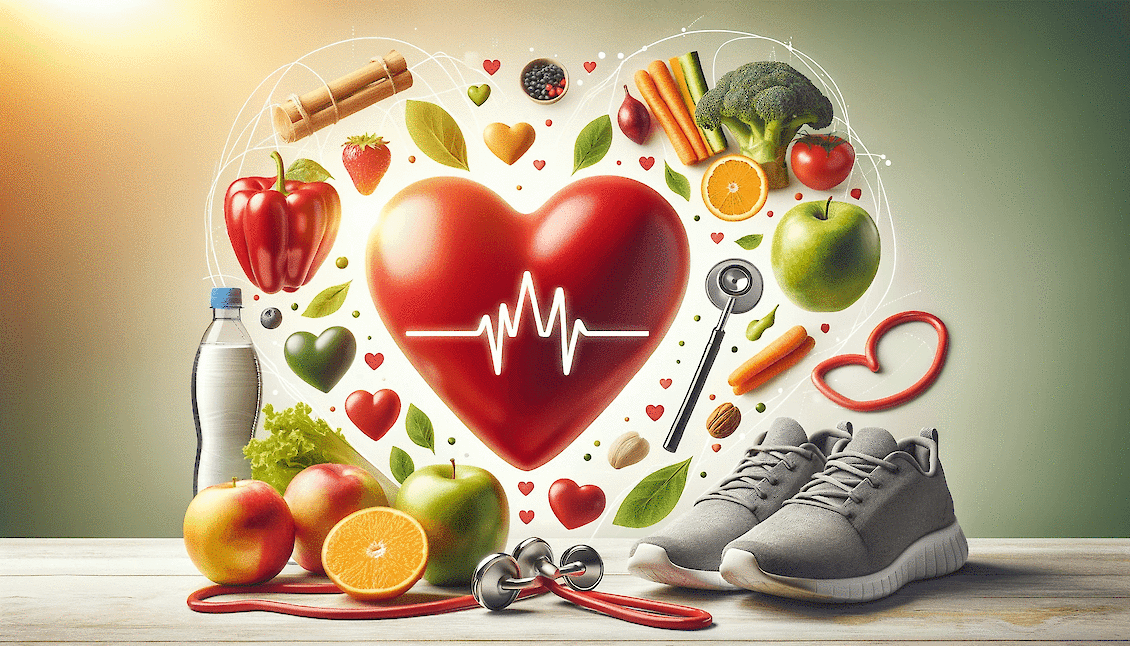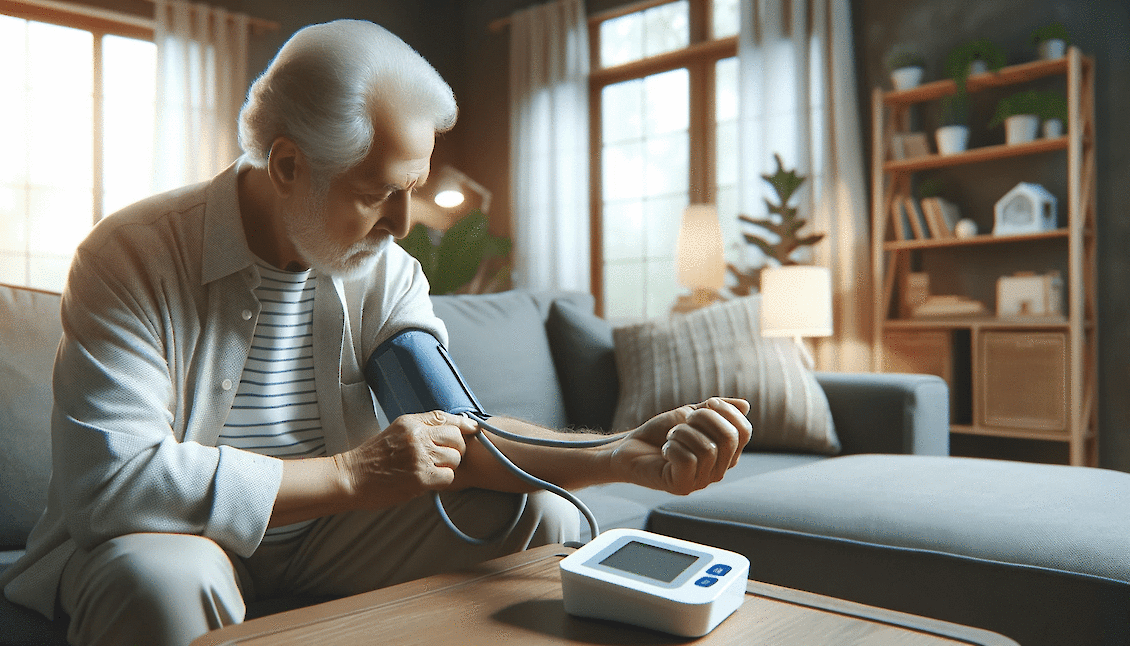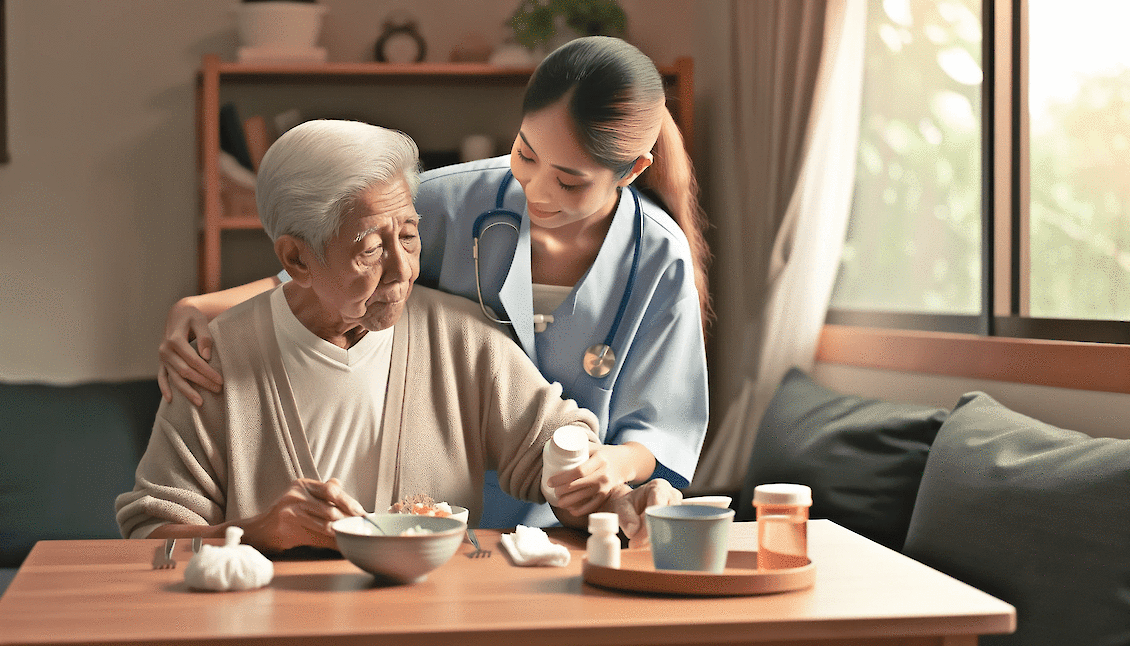February, recognized as American Heart Month, is a vital time for seniors and their loved ones to focus on heart health. A critical aspect of maintaining heart health, especially in our golden years, revolves around effectively managing blood pressure. This blog post will delve into the importance of blood pressure monitoring for seniors, offering insights and actionable tips to ensure a healthier heart. As we navigate the complexities of aging, understanding and controlling blood pressure becomes more than just a medical consideration—it's a key to sustained wellbeing and vitality.

Why Blood Pressure Monitoring is Crucial for Seniors
As we age, keeping a close eye on our blood pressure becomes increasingly important. Blood pressure, the force exerted by blood against the walls of blood vessels, is a vital sign of our overall heart health. For seniors, regular monitoring is crucial due to the natural changes that occur in our bodies.
One common condition in the elderly is isolated systolic hypertension – a situation where the systolic pressure (the first number in a blood pressure reading) is elevated above 130, while the diastolic pressure (the second number) remains below 80. This condition, often caused by the stiffening of major arteries, can lead to significant health risks, including heart attacks, strokes, and kidney disease.
Regular blood pressure monitoring allows for early detection and management of these risks. It's not just about identifying high blood pressure but also understanding and adjusting to its fluctuations and trends over time. By keeping track, seniors and their healthcare providers can make informed decisions about lifestyle changes, medications, and other treatments that promote heart health and overall well-being.

Blood Pressure and Heart Health in Seniors
The relationship between blood pressure and heart health in seniors is a crucial one. High blood pressure, or hypertension, is often termed the 'silent killer' because it typically has no symptoms but can lead to serious heart-related issues.
High blood pressure in seniors is a significant risk factor for developing heart diseases, including heart attack and heart failure. It can also lead to strokes and chronic kidney disease. The mechanics are straightforward yet critical: when blood pressure is high, it puts extra strain on the heart and arteries. Over time, this strain can cause the arteries to become thicker and less flexible, or to become weaker. Either scenario is detrimental, leading to various heart health complications.
Research, such as the findings from the SPRINT study, emphasizes the importance of managing blood pressure, particularly in the senior population. This study revealed that seniors who maintained their systolic blood pressure below 120 mm Hg significantly reduced their risk of heart disease and even death. This groundbreaking revelation underscores the need for careful and consistent blood pressure monitoring and management as a cornerstone of heart health for seniors.

Recommended Blood Pressure Monitoring Practices
Monitoring blood pressure is key to managing heart health, especially for seniors. The process doesn't have to be complicated and can be done both at home and in a clinical setting. Here's how seniors can effectively monitor their blood pressure:
-
Regular Monitoring: Seniors should have their blood pressure checked regularly. This can be done during routine doctor visits, but it's also wise to check it at home. Consistent monitoring helps in identifying any significant changes or trends that might require medical attention.
-
Using a Home Blood Pressure Monitor: Home monitors are an excellent way for seniors to keep an eye on their blood pressure. Choose a monitor that has been validated for accuracy and reliability. The cuff should be of the right size and placed correctly on the arm to get accurate readings.
-
Understanding the Readings: Blood pressure readings have two numbers - systolic (the top number) and diastolic (the bottom number). A reading of 120/80 mm Hg is considered normal. If the systolic number consistently stays above 130 or the diastolic number stays above 80, it’s categorized as high blood pressure.
-
Keeping a Record: Maintaining a log of blood pressure readings can be incredibly useful for healthcare providers. This log should include the date, time, and any notes on activities before taking the reading, like exercising or eating.
-
Lifestyle Considerations: Factors like stress, diet, and physical activity can influence blood pressure. Seniors should be mindful of these and try to maintain a healthy lifestyle to manage their blood pressure effectively.

Lifestyle Changes for Managing Blood Pressure
Managing blood pressure in seniors isn’t only about medication; it involves embracing a heart-healthy lifestyle. Here are some effective lifestyle changes:
-
Dietary Adjustments: A heart-healthy diet is key. The DASH (Dietary Approaches to Stop Hypertension) eating plan, rich in fruits, vegetables, whole grains, and low-fat dairy products, can lower blood pressure. Reducing sodium intake and limiting alcohol consumption are also important.
-
Regular Physical Activity: Exercise is crucial. Seniors should aim for at least 150 minutes of moderate-intensity aerobic activity per week, like brisk walking or swimming. It’s always good to consult a healthcare provider before starting any new exercise regimen.
-
Weight Management: Maintaining a healthy weight helps control blood pressure. Even a small amount of weight loss can make a significant difference.
-
Quit Smoking: Smoking cessation is vital as it can exacerbate hypertension and increase the risk of heart diseases.
-
Stress Management: Chronic stress can contribute to high blood pressure. Techniques such as mindfulness, meditation, or simply engaging in hobbies can help manage stress.
-
Adequate Sleep: Good quality sleep is essential. Poor sleep can affect blood pressure, so addressing issues like sleep apnea is important.
-
Regular Health Check-Ups: Regular visits to a healthcare provider for blood pressure checks and overall health assessments are crucial.

The Role of Caregivers in Blood Pressure Management
Caregivers play a vital role in helping seniors manage their blood pressure and maintain heart health. Here’s how they can effectively assist:
-
Encouraging Regular Blood Pressure Monitoring: Caregivers can remind seniors to take their blood pressure regularly and assist with using home monitoring devices.
-
Supporting Healthy Lifestyle Changes: Caregivers can help in planning and preparing heart-healthy meals, encouraging regular physical activity, and creating a smoke-free environment.
-
Medication Management: They can ensure that seniors take their blood pressure medications as prescribed and assist with organizing and tracking medication schedules.
-
Reducing Stress: Engaging seniors in stress-relieving activities like walks, social interactions, or hobbies can be a great help.
-
Educational Support: Caregivers can educate themselves about blood pressure management and heart health to provide better support and identify warning signs that may require medical attention.
-
Emotional Support: Sometimes, just being there and offering emotional support can significantly impact a senior’s health and well-being.
As we mark American Heart Month, let's remember the importance of managing blood pressure for senior heart health. By monitoring blood pressure regularly, making lifestyle changes, and with the support of caregivers, seniors can significantly improve their heart health. Let's all take action to ensure our golden years are not only longer but also healthier and happier.